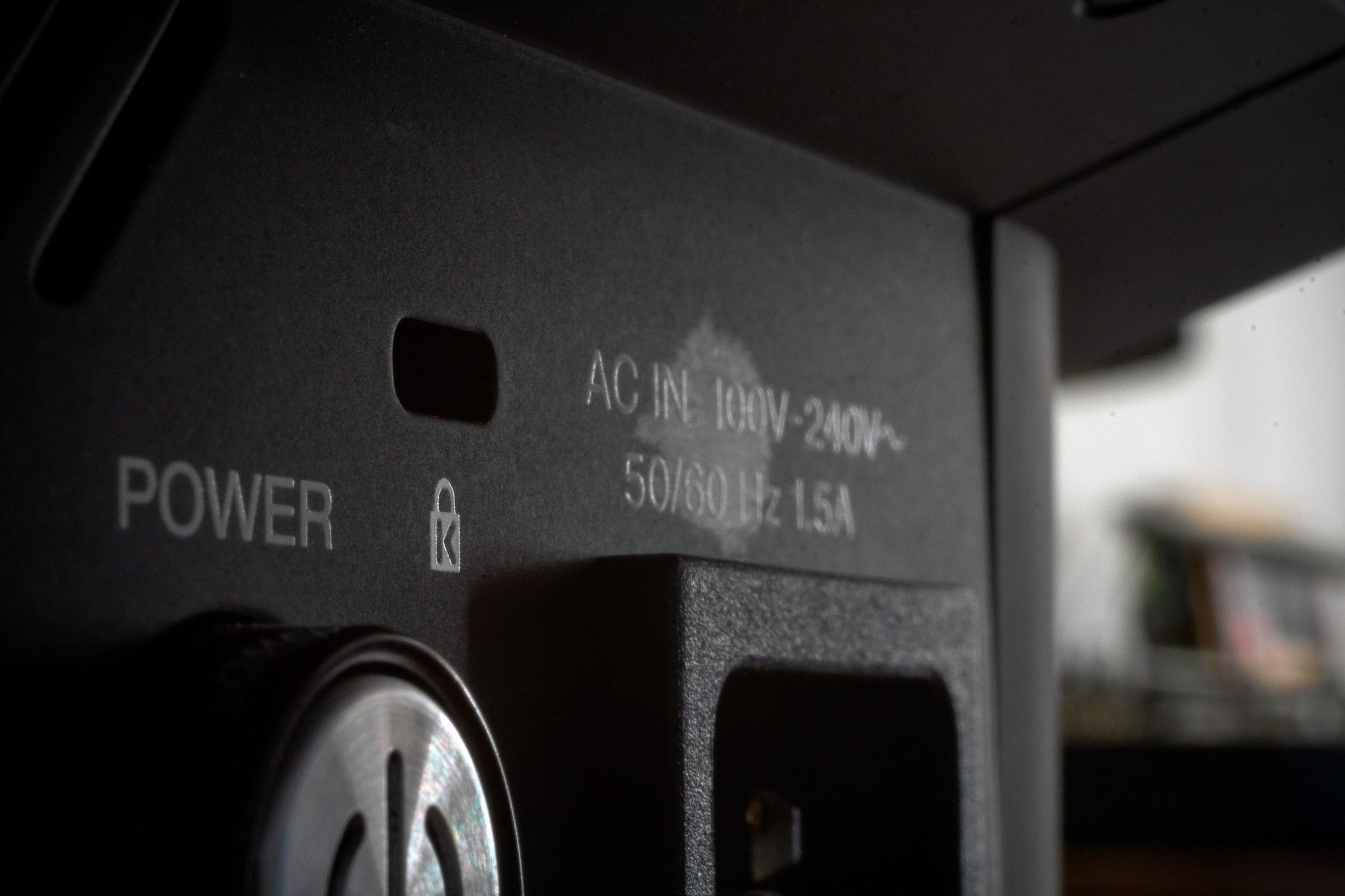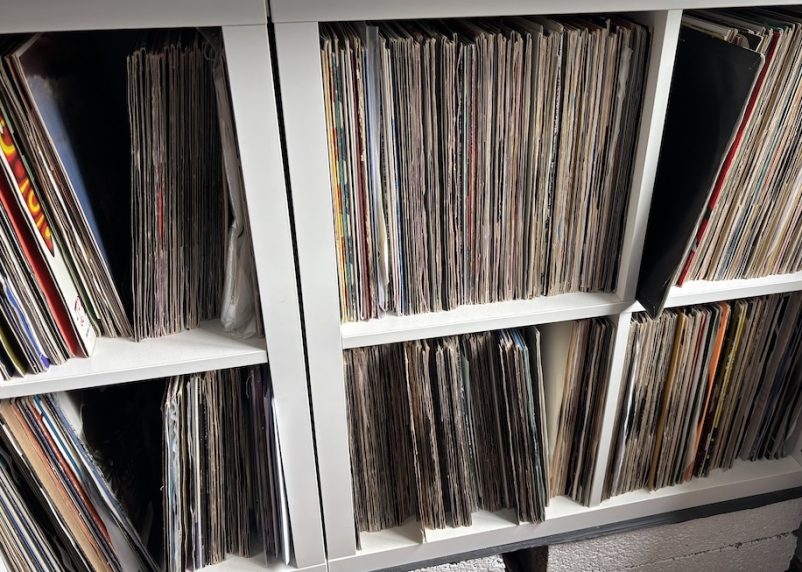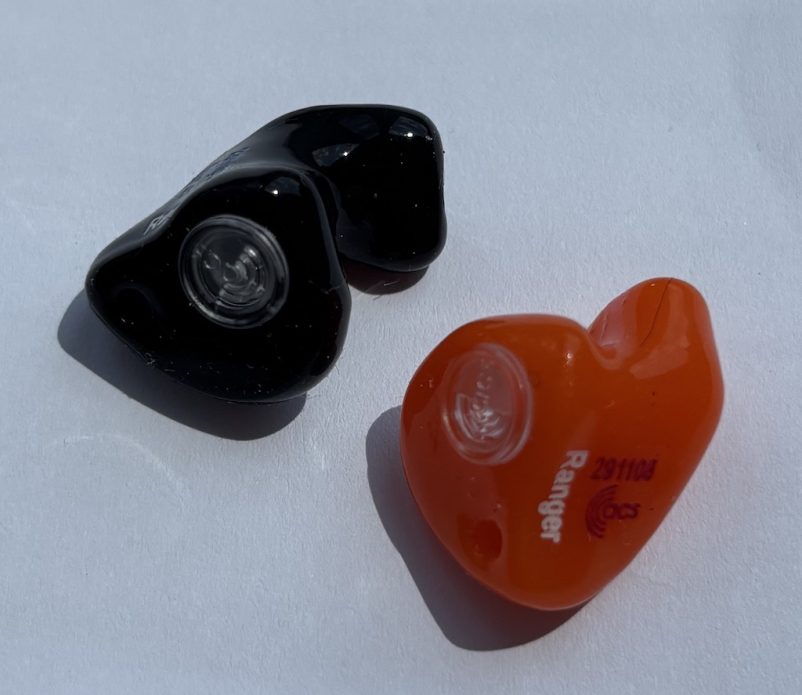As the assorted offerings from the DJ industry get bigger, arguably better, but definitely more expensive, the issue of security comes to mind. Obviously, it goes without saying that you shouldn’t leave gear unattended, in the clear view of passers-by in the back seat of your car, or generally out of your sight at all. If you do, you only have yourself to blame for anything that happens.
But beyond this, we’re talking about securing your gear, to stop the casual smash and grab merchant from half-inching your latest shiny that you pawned your first-born to own. I’m talking specifically about that weird slot on your stuff with a K padlock icon next to it. That dear reader is the Kensington lock, a port that allows you to physically fix your tech to the nearest heavy object.
Technically speaking, it’s the Kensington security slot, with the lock being attached to the end of a heavy cable. And they have appeared mainly in laptops, but over the years it has crept into DJ gear too. Not all DJ gear you understand — the slot needs to be of a specific size, and generally only appears in products with plastic bodies, effectively ruling out the vast majority of mixers or anything with a metal body.
It’s not the perfect solution, because a plastic body will soon yield to enough brute force, albeit leaving a huge hole or potentially destroying the unit. But it should be enough to discourage the average opportunist from making off with your music-making machinery.
But here’s the thing — despite being a staple feature of many a plastic bodied bit of kit, I’ve yet to see anyone use them. So my question is this:
Does anyone use a Kensington lock to secure their DJ gear?
Well… do you? Retailers? Trade show exhibitors? Booths?
It doesn’t matter if you do or don’t really. I don’t believe it costs anything to add to gear. Having never seen one in use, my question is out of idle curiosity.





I do.
One of my regular bookings is for a season of Christmas parties. It’s a run of approx 20 nights from mid November to New Years Eve.
My gear gets installed & stays there for the whole run (apart from my laptop, which goes home every night).
My controller has a kensington lock attached to it, which is also looped through my laptop stand etc.
That Kensignton lock cord can easily be cut.
The security of many modern encryption schemes is mostly based around the fact that there’s currently no computationally efficient way to factorize the product of two large prime numbers. Every security system has flaws, because otherwise the item being secured cannot be used. What’s your point?
I find this is far more effective… https://www.youtube.com/watch?v=bMtqRir7dco
I’m a mobile DJ, so I’m typically around my gear (and it’s playing) so I haven’t used the lock.
What gave you the impression that the Kensington slot is only available on plastic gear? My (admittedly aged) SL3 has Kensington slots on both aluminum end plates. A quick spin around Rane’s site shows that the current SL2, SL3, and SL4 enclosures all have Kensington slots too, and the enclosures still appear to be aluminum. In the world of non-DJ hardware, both my bench power supply (steel chassis) and my oscilloscope (plastic shell over cast aluminum chassis) have Kensington slots.
Interesting. I shall have to take a look. It’s probably to do with the thickness of material.
The depth behind the mounting surface for Kensington lock slots does seem to be fairly standardized. I’ve seen a variety of different lock cable thicknesses, lock arrangements (e.g. multiple locks one one cable, one lock per cable, etc.) and locking mechanisms, but the business end of the lock is always about the same. The heavier cables are probably best for serious theft prevention, but a small one provides good peace-of-mind insurance against some random person walking off with a bit of gear. I’ve used my (small, portable) lock to secure my laptop and my SL3 at different points in time.
SL3 is definitely a metal slot, it’s the one I use most often.
My mpk25 is definitely plastic.
Only in plastic? LMAO
Yes, I have a cable and use it on my laptop when/if required.
I mention security, I get plenty of folks here saying it isn’t needed. They say consider the area that I’m in. And they questioned the locations that I frequent. You mention the same thing and those same people can’t be found anywhere here. lol!!! Goes to show that folks react differently to the same thing depending on who’s saying it. When I said it they wouldn’t accept it. You saying it legitimizes it for them and they accept it fully. Funny. Where are they now?
I don’t bother with less expensive midi gear, but I wouldn’t leave my laptop unattended without a lock.
I’ve got KL’s for my macbook and S4 mk2.
They’re more a visual deterrent in case of opportunist thieves .
You should do an article called
“How many of you actually listen to, try to match up to on beat, and need a beat playing when youre scratching”
Cause i watch this shit and think, “what are they listening to” cause the scratches dont even remotely match or align the beat they`re playing, let alone create harmony or melody to the beat.
Yep, having had a laptop/SL3 and other things stolen before- I use the Kensington Lock on quite a bit of my gear.
Anytime I have my equipment in a strange venue or environment, yes.
Sometimes. But yes.
We use it at venue where I’m resident. Heard from few of my friends that are playing at other clubs in town that gear got stolen during the night, before they opened second dance floor. So we use it mainly on our XDJ1000mk2 since they are quite portable, but also mixer. We usually rent a lot of extra equipment for some nights, which results in many different technicians running around and picking gear back, so it is quite useful to lock “house gear” to the booth to avoid any mistakes.
Side note: I know one venue where XDJ-RX was stolen during one of the nights – it was disconnected (DJ was using own gear) and one of the guests left the venue with it. Actually I’m quite impressed that someone managed to pull it off, and leave thru the front door… I mean, it is not so little to hide it under the jacket….
I have locked up DJ gear many times.
I would reckon it is not being used by most DJs for their own personal gear at gigs.
It is used for venues like pubs or bars where there is a DJ setup that resides in some corner somewhere and the DJs are only around for certain nights during evening hours. If it is locked, the other bar staff do not need to keep a close eye on the gear.
I have also locks it for rental gear that I chose to leave at a restaurant venue for several days. A friend was renting the gear Weds and I had to come back for another show Saturday. It was in a hotel where the back door to the venue was always open out to the service corridor. Restaurant staff and all hotel staff had access to the venue 24/7 so I did not want to leave it to chance.
However, that being said… I have never used kensington lock for DJ gear. I have used it on laptops, but I prefer bigger locks. I usually have some sort of road case that accepts a large padlock for my DJ gear.
Of course if you’ve got a new MacBook Pro, you don’t actually have a Kensington lock slot.
….so you’ll need one of these!
https://www.amazon.co.uk/Maclocks-MBPRLDGTB01-Security-Adapter-MacBook/dp/B06XJS8H8S
When I bought my very first bit of digital dj gear and started playing out with it, I did. It’s also one of the first things I stopped using because I never left the booth during a set and felt like a dork using them. They were too fiddley for my clumsy hands anyway.
So, out of curiosity, I left a laptop sitting on a table at a gig this weekend. Put it there before doors opened and retrieved it after doors closed. I guess people in our local scene are more trustworthy than I thought. It was in the same spot surrounded by empty beer bottles and a couple empty glasses. :-p
Yes – use them to secure XDJ1000’s in the club we play at.